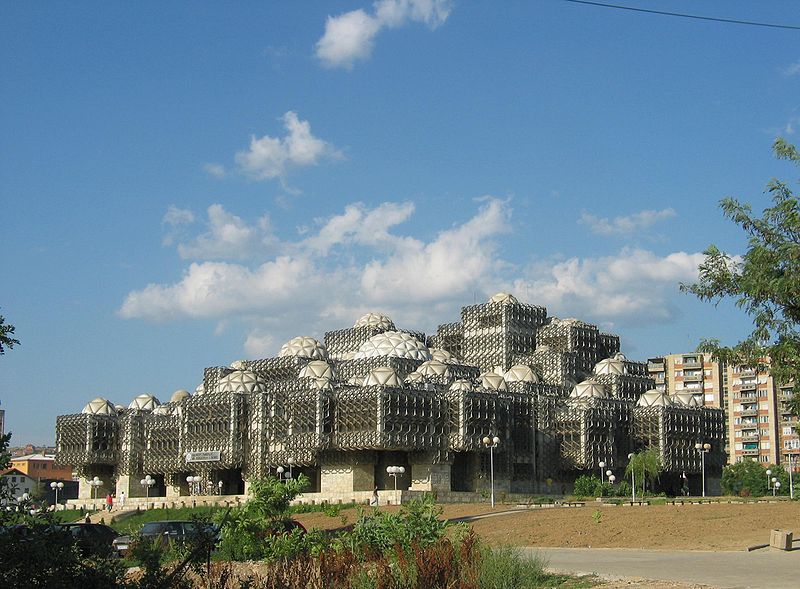
By Peter Tase
On Kurti’s book “Tears of Flowers”
The greatest thing in the world is to find a poet like Muharrem Kurti who lives up to his potential, a passionate writer with a vibrant style and great popularity in Kosovo. In the recent years, Kurti’s writing has shaped a new era in Kosovo’s literary style. In today’s landscape of writing in the Balkans, his poems have emerged as a genuine creation with a unique rhythm, passion and certainly Kurti’s aspirations to embrace libertarian values, his nation’s heroism as well as set the guidelines for a new beginning in Kosovo’s currently lingering environment of literature. “Tears of Flowers”, have brought Kurti as a writer with a vision, patriotism, distinct identity, and an inner drive to make Albanian language verses in Kosovo reaches the standards of other nations’ literature in Europe. “Tears of Flowers” represents a postmodern volume, in which it is hard to identify only a single strength. Indeed there are several values present in this book. The reader can easily identify two styles, writing in meter and free verse, some of Kurti’s finest lines are in meter.
Freedom is the milestone of Muharrem Kurti’s poetry. The structure of his book has almost every gem and precious stones, the external shape as well as a solid interior matter, both needed to raise the building of freedom, snow storms, heavy rain and attacks that could threaten itself.
Overall, every poem of Muharrem Kurti embodies the suffering of his countrymen, intertwined with passion to use a stylish word, promote the great sacrifice of Gjakova – throughout her history – bring forth his nation’s democratic values in the heart of Europe and the final ‘dream’ is to reinvigorate freedom in the Balkans and energize the waves of liberty. Liberty is spread evenly in every page of his book, just like a vital juice without which life is meaningless and in existent.
The values of freedom are much more appreciated from those like Muharrem Kurti who grew up and went to school without ripping the fruits of freedom and Judeo-Christian democratic values. Writers in Kosovo, including Muharrem Kurti, have experienced the frightening images of death, and darkness days of slavery, nonetheless they never ceased to fight until winning their nation’s independence in February 2009. The great surprise of this world, which still remains a mystery, is the fact that men are the greatest enemy of men. Muharrem Kurti wrote his poem “On March 24th, 1998” at time when the Serbian Terror, massacres against Albanian population and genocide in Kosovo were succumbing the whole nation. He writes: “A light/ is diminished/ through the holes/ of infinite darkness. / like a hope/ that opens new paths/ towards the hopeful/ future.”
Kurti’s poetry is covered by a soft and sweet mantel, covered by liberty that embraced in every verse, where metaphors are well selected, and have the weight of poetical art, a stellar tradition that sets the author aside from others who tend to use infinite words to make reference to patriotic aspirations and values.
Muharrem Kurti’s poetry is like a stone that is carved well, located at the right position with special care in his well-deserved location. Poems in this book are edited by Din Mehmeti, another influential pillar in Kosovo’s poetical circles. Din Mehmeti has taken the right actions in setting the tone in Kurti’s poetry and making it eligible to be compared with contemporary verses written by distinguished writers in France, Spain and other countries of Europe. Perhaps Din Mehmeti has paid the favor to his own countrymen by providing his expertise and talent in Kurti’s volume of poetry.
Reading Muharrem Kurti’s biography, is without a doubt a clear connection between his sad experiences and verses full of sadness, passion, encouragement, patriotism and western like values.
At the age of 15 Muharrem Kurti, moved from Gjakova to Berat, where he went to High School and later studied at the Alexander Xhuvani University in Elbasan, Albania. In 1987, Kurti was convicted with 19 months in jail for violating the laws of Serbia in doing a propaganda against the repressive regime of Belgrade. While living in many parts of Albania, he has emerged as a sole author who depicts regional personal memories in every verse and short story that he has published. Kurt’s experience are a wealth to today’s humanity, his literary work, dedication to Albanian poetry – as the Chairman of the “Gjon Nikolle Kazazi” Literary Club of Gjakova, Kosovo.
Poetical Dictionary of Muharrem Kurti, creates an interesting setting which brings the reader to experience his flowers, light, kids, youngsters, hope, morning dawn, Prometheus, the Sun, doves, Guardians, spies, devil and Serbian inquisitors; such a universe combined with betrayed heroes, bloody centuries, prisoners of war, war victories, holocaust against Albanians and lost wars.
Muharrem Kurti was born in the village of Smolice, Gjakova, on May 30th, and did his elementary education in his hometown; has written poetry since his High School days in the City of Berat; has published poetry and prose in many magazines in Albania and other countries of Europe.
Muharrem Kurti has published the following Works: “Flowering in an Evening” – 1998, published in Kosovo; “Prays of Return,” 2000, published in the Marin Barleti Publishing House, Albania.




